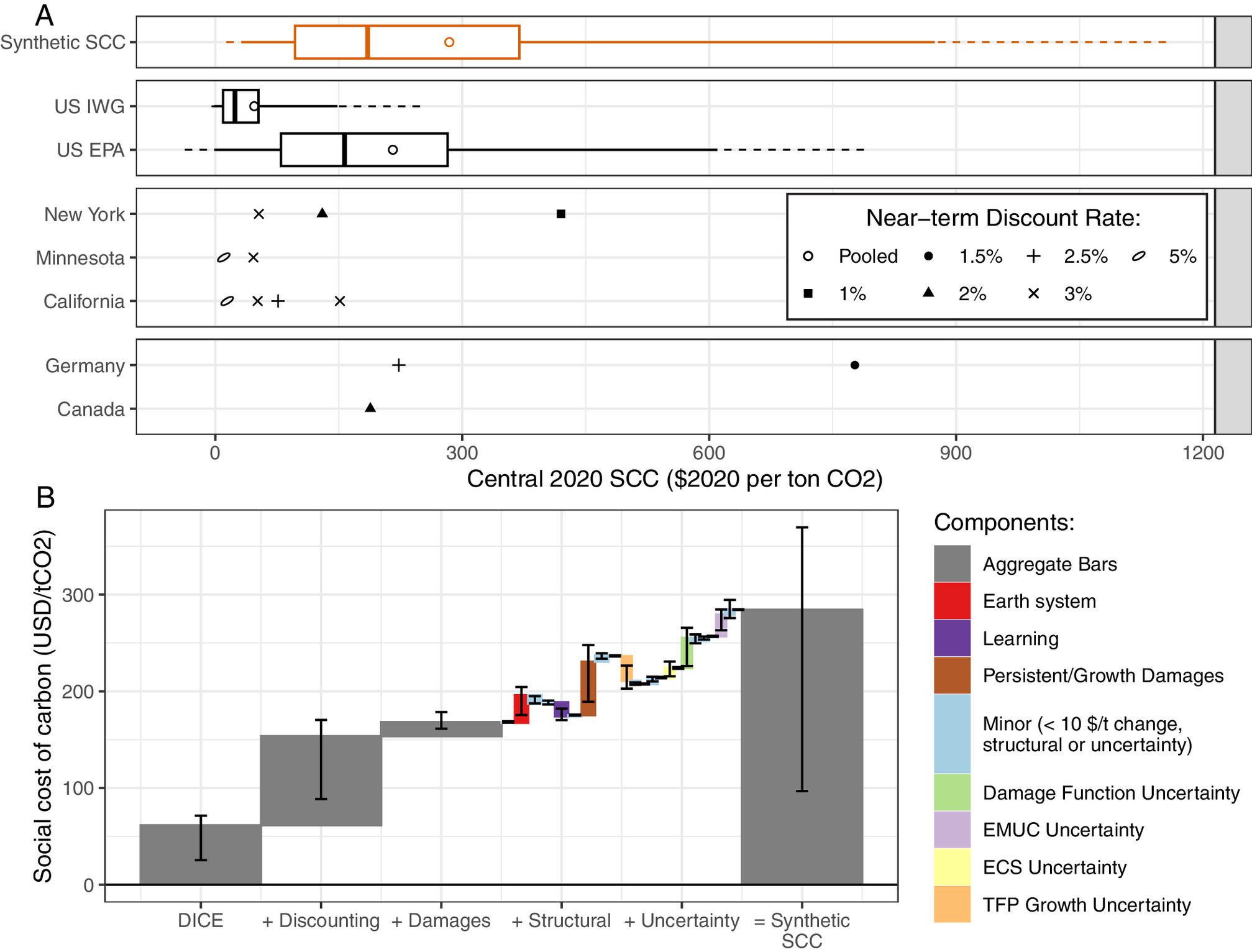Synthesis of evidence yields high social cost of carbon due to structural model variation and uncertainties
by Frances C. Moore, Moritz A. Drupp, James Rising, Simon Dietz, Ivan Rudik & Gernot Wagner

Significance:
Estimating the social cost of carbon (SCC)—the cost of one additional ton of CO2 emitted—is crucial for the analysis of climate change policies. Despite numerous recent studies investigating how fundamental aspects of model structure affect SCC evaluation, findings are scattered, making the relative importance of different modeling elements hard to establish. This paper synthesizes results from the published literature over the last 20 y, revealing a wide range of SCC estimates. However, survey evidence reveals experts believe estimates in the literature are too low due to a range of limitations in published values. Reweighting the literature to partly address these omissions more than doubles the SCC to $283.
Abstract:
Estimating the cost to society from a ton of CO2—termed the social cost of carbon (SCC)—requires connecting a model of the climate system with a representation of the economic and social effects of changes in climate, and the aggregation of diverse, uncertain impacts across both time and space. A growing literature has examined the effect of fundamental structural elements of the models supporting SCC calculations. This work has accumulated in a piecemeal fashion, leaving their relative importance unclear. Here, we perform a comprehensive synthesis of the evidence on the SCC, combining 1,823 estimates of the SCC from 147 studies with a survey of authors of these studies. The distribution of published 2020 SCC values is wide and substantially right-skewed, showing evidence of a heavy right tail (truncated mean of $132). ANOVA reveals important roles for the inclusion of persistent damages, the representation of the Earth system, and distributional weighting. However, our survey reveals that experts believe the literature underestimates the SCC due to an undersampling of model structures, incomplete characterization of damages, and high discount rates. To address this imbalance, we train a random forest model on variation in the literature and use it to generate a synthetic SCC distribution that more closely matches expert assessments of appropriate model structure and discounting. This synthetic distribution has a mean of $283 per ton CO2 for a 2020 pulse year (5% to 95% range: $32 to $874), higher than most official government estimates, including a 2023 update from the U.S. EPA.
climate change │ social cost of carbon │ meta-analysis │ environmental economics
Full text: "Synthesis of evidence yields high social cost of carbon due to structural model variation and uncertainties" (17 December 2024; PDF; 63-page online appendix)
Working paper versions:
CEPR Discussion Paper DP19137 / NBER Working Paper 32544 (June 2024).
Media coverage: "Dilemma on Wall Street: Short-Term Gain or Climate Benefit?" New York Times (20 June 2024); "How much will climate change drag down the economy?" Yale Climate Connections (1 July 2024).

